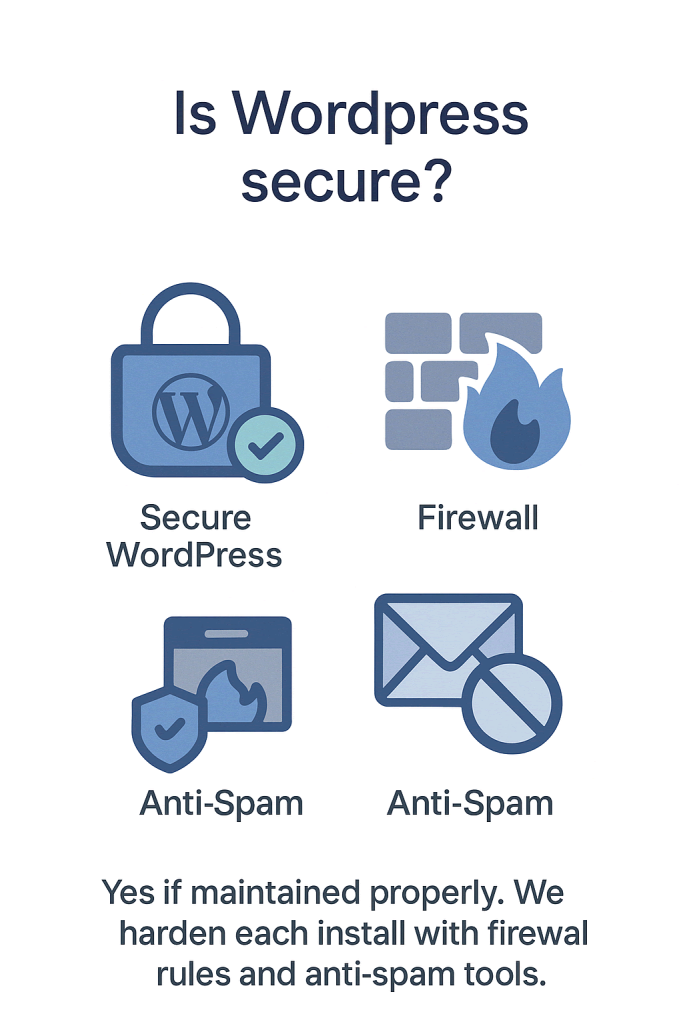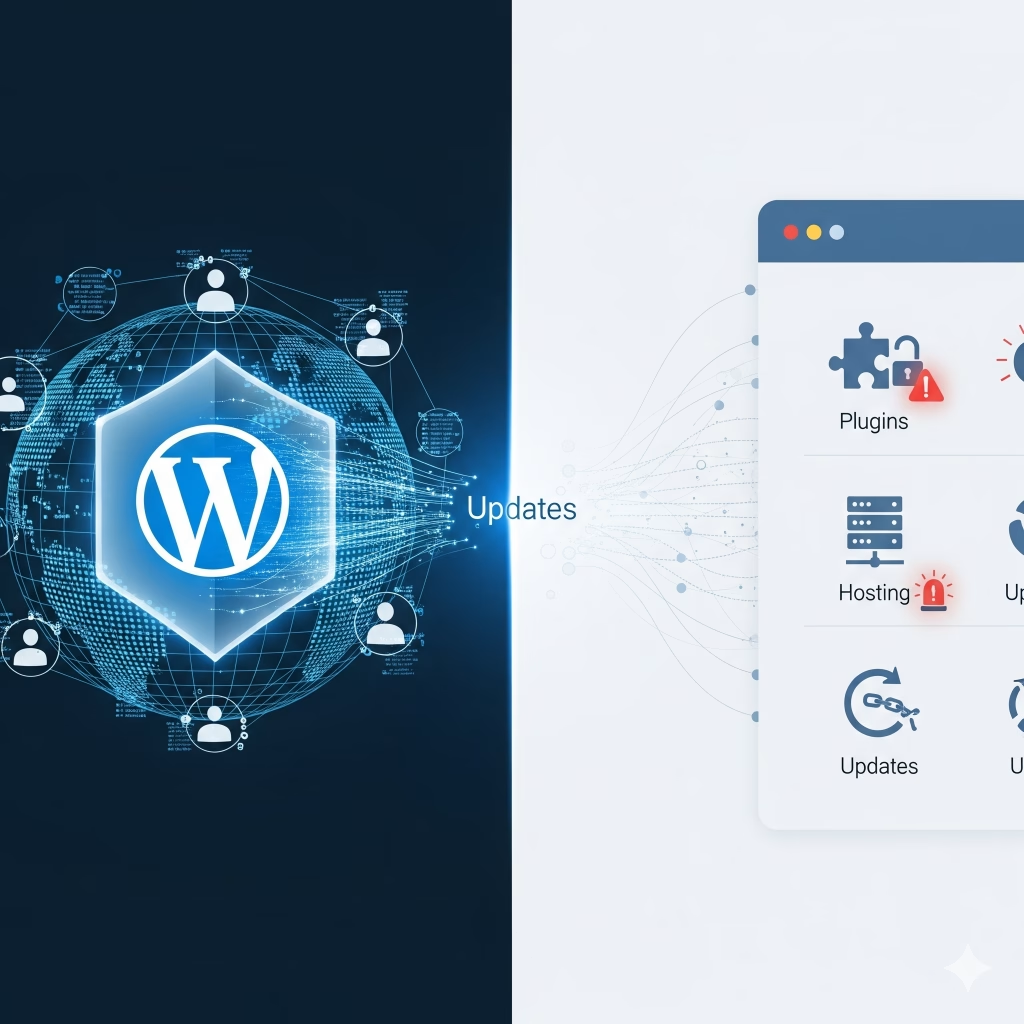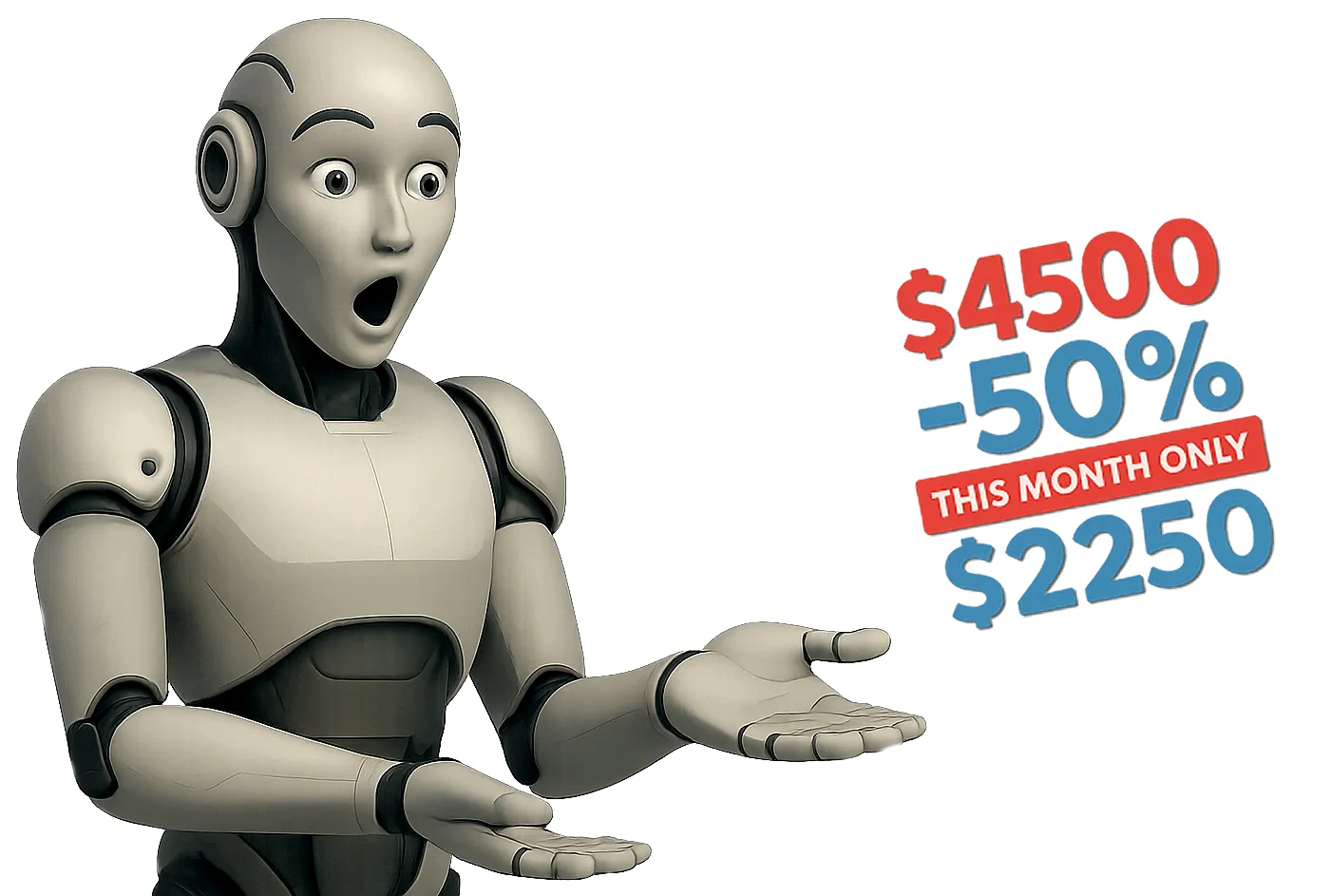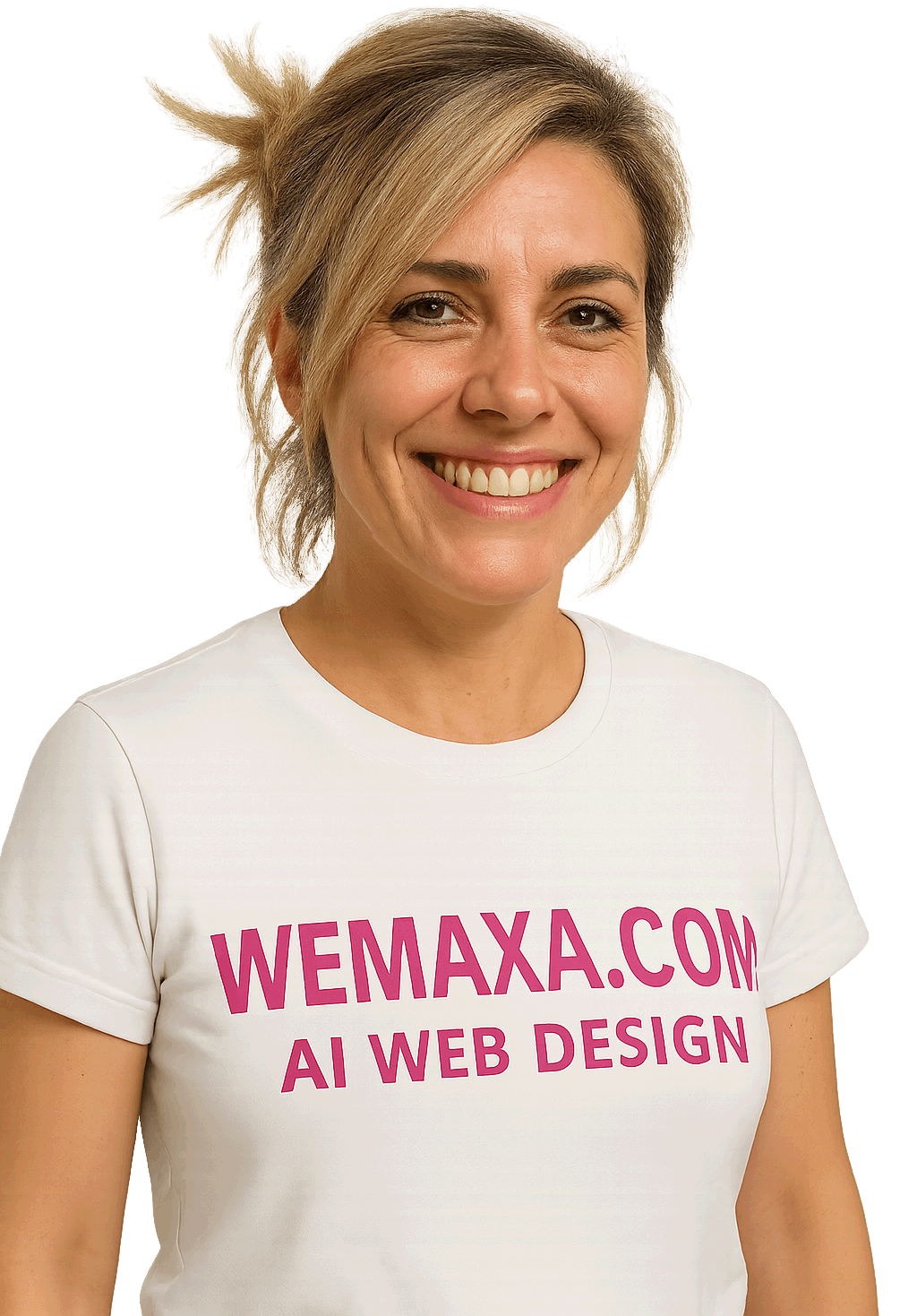
Vulnerabilities to Watch Out For:
| Threat | Cause |
|---|---|
| 🔓 Brute force | Weak passwords |
| 🧩 Plugins | Outdated |
| ⚙️ SQL injections | Poorly coded forms |
| 👤 Privileges | Misconfigured |
🔐 Key Factors That Affect WordPress Security:
✅ 1. Regular Updates
- Core WordPress updates fix vulnerabilities quickly.
- Keep themes and plugins updated to avoid known exploits.
✅ 2. Quality Themes & Plugins
- Avoid nulled or sketchy plugins.
- Use well-reviewed plugins from reputable sources (WordPress.org, CodeCanyon, etc.).
✅ 3. Secure Hosting
- Choose hosting that offers:
- Firewalls
- Daily backups
- Malware scanning
- Server hardening
- Examples: Kinsta, SiteGround, WP Engine
✅ 4. Admin Best Practices
- Use strong passwords and 2FA (two-factor authentication).
- Don’t use the username “admin.”
- Limit the number of users with administrator access.
✅ 5. Security Plugins (Optional but Helpful)
- Wordfence: Firewall, malware scanning, login security
- iThemes Security: One-click hardening options
- Sucuri: Firewall, monitoring, and malware cleanup
✅ 6. Backups & Monitoring
- Always have automated daily backups (via UpdraftPlus, Jetpack, BlogVault, etc.).
- Set up email alerts for login attempts or file changes.
🛡️ Summary:
WordPress is secure if you treat it seriously. Like any system, it becomes vulnerable if you ignore updates, use bad plugins, or fail to lock down access. If you’re using Wemaxa.com we can harden your site with best practices right from launch.
MORE LINKS:
What is wordpress?
WordPress theming.
AI chatbot installation
Recommend a CMS
WordPress for eshop
Who owns the CMS?
Updating wordpress
Managing content
Install plugins
IS WORDPRESS SECURE TO USE?
Yes, WordPress can absolutely be secure, but its safety depends on how it’s configured, updated, and maintained over time. While WordPress has a strong foundation and security features built into its core software, its open-source nature and wide range of customization options mean that proper setup is essential. A well-built WordPress site can be just as secure as any custom solution, but it takes care and attention to get it right.
One of the biggest risks comes from third-party plugins and themes. Using outdated, poorly coded, or unsupported tools can create vulnerabilities that hackers may exploit. That’s why we only install trusted, regularly updated plugins and themes from reputable sources. We also remove anything unused or unnecessary to reduce potential points of entry. Keeping your site lean and clean goes a long way in maintaining strong security.
Another key factor is how admin access is managed. Weak passwords, shared accounts, and unrestricted user permissions can all pose serious threats. We enforce strong login credentials, two-factor authentication, and role-based access control to make sure only the right people can make changes to your site. We also monitor login attempts and can block suspicious activity in real time.
At Wemaxa, we implement best practices from the start including SSL encryption, firewalls, regular updates, backups, and malware scanning. And for clients with ongoing support plans, we continuously monitor and harden your site’s defenses. WordPress is secure when treated with care, and our team ensures it stays that way.

Is WordPress Secure in 2026?
When it comes to website security, one of the first questions many business owners and entrepreneurs ask is whether WordPress can provide a safe foundation for their online presence. With over forty percent of the internet powered by this platform, it is natural to wonder if such widespread usage makes WordPress more vulnerable. The truth is that the core software itself is highly secure and is maintained by a dedicated global community of developers who issue regular updates, review code for vulnerabilities, and release security patches whenever potential threats are discovered. This collaborative process, paired with the constant vigilance of thousands of contributors, makes WordPress one of the most actively protected content management systems in existence today. However, security is not just about the platform it is equally about how each site owner manages updates, hosting, plugins, and day-to-day operational practices.
A common misconception is that WordPress itself is unsafe. In reality, most breaches occur because of outdated plugins or themes, poor password hygiene, or using hosting providers that do not take adequate precautions. For instance, if a business fails to update its plugins, hackers may exploit known vulnerabilities that have already been patched in newer versions. Likewise, weak or reused passwords create a pathway for brute force attacks regardless of how secure the underlying system might be. That is why experts emphasize following basic cybersecurity practices such as enabling two-factor authentication, using strong unique passwords, and keeping all third-party extensions regularly updated. Resources like the Wordfence Security Plugin or managed services that monitor suspicious activity in real-time can add another critical layer of protection for business websites.
The hosting environment also plays a major role in WordPress security. Reputable providers such as Kinsta or WP Engine implement server-level firewalls, automatic backups, malware scanning, and DDoS mitigation. Choosing a professional host that prioritizes these measures significantly reduces the risk of downtime or intrusion. On the other hand, relying on cheap or unmanaged hosting can expose sites to unnecessary risks, as attackers often target shared environments where one compromised account can open a door to others. By combining a secure host with continuous monitoring tools, WordPress site owners can operate with confidence that their digital storefront remains protected against evolving threats.
Beyond the technical safeguards, WordPress also provides a strong framework for compliance and best practices. Features such as user role management, SSL integration, and compatibility with GDPR compliance plugins allow businesses to control access and secure sensitive information. Regular updates ensure that emerging vulnerabilities are addressed quickly, which is why automation has become critical in 2026. Services like ManageWP or built-in automatic updates offered by hosting companies reduce the burden of manual intervention, ensuring that site owners never fall behind on critical patches. This means that even businesses without technical expertise can maintain a secure website as long as they adopt the right tools and services.
In conclusion, WordPress is secure when treated as part of a broader security strategy rather than a set-and-forget solution. The combination of regular updates, quality hosting, strong user practices, and professional monitoring ensures that WordPress sites remain resilient against most cyber threats. For organizations that want to minimize risk and maximize performance, working with experienced agencies like Wemaxa is a strategic investment. With the right partnership, your WordPress-powered website can be as secure as any enterprise-grade system while still retaining the flexibility and scalability that have made WordPress the most popular content management platform in the world.


